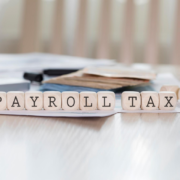Trump Signs Executive Order Deferring Payroll Taxes
On August 8th, President Trump signed a total of four Executive Orders to provide further Coronavirus relief. The orders provided enhanced unemployment payments, student loan payment relief, eviction suspensions, and, most notably, a deferral of payroll taxes.
Payroll tax, or more frequently known as employment tax, is comprised of 6.2% Social Security tax and 1.45% Medicare tax. The order’s deferral will be applied toward the employee’s portion of Social Security tax withheld and for an employee’s pretax wages or compensation covering any biweekly pay period of less than $4,000. This deferral will be held without penalties, interest, or any additional tax imposed on the employer or employee.
While this does provide some assistance to taxpayers since Congress has come to a standstill on relief bill negotiations, a deferral is just a postponement of taxes owed. In short, the deferred taxes will still have to be paid if no further action is taken to eliminate them altogether. The deferral is for the withholding, deposit, and payment of these taxes from September 1, 2020 through December 31, 2020.
The Treasury is expected to issue guidance on implementation of the order as there are many outstanding questions surrounding it. The U.S. Chamber of Commerce and the AICPA are just two major organizations calling for further clarification on the order and its provisions for payroll tax deferral. Some of these issues include:
- Eligibility to elect this deferral
- Who is responsible for repayment of the deferred taxes
- Payment deadlines for the taxes due
- How payment will be collected
- How fluctuating salaries and bonuses are accounted for with the order
- Short-term and seasonal worker payroll
- How to handle the deferred taxes when employees change jobs during the defined period
We are closely monitoring this situation as more guidance is released. Please contact your Scheffel Boyle team member with questions. We are always here to help.



